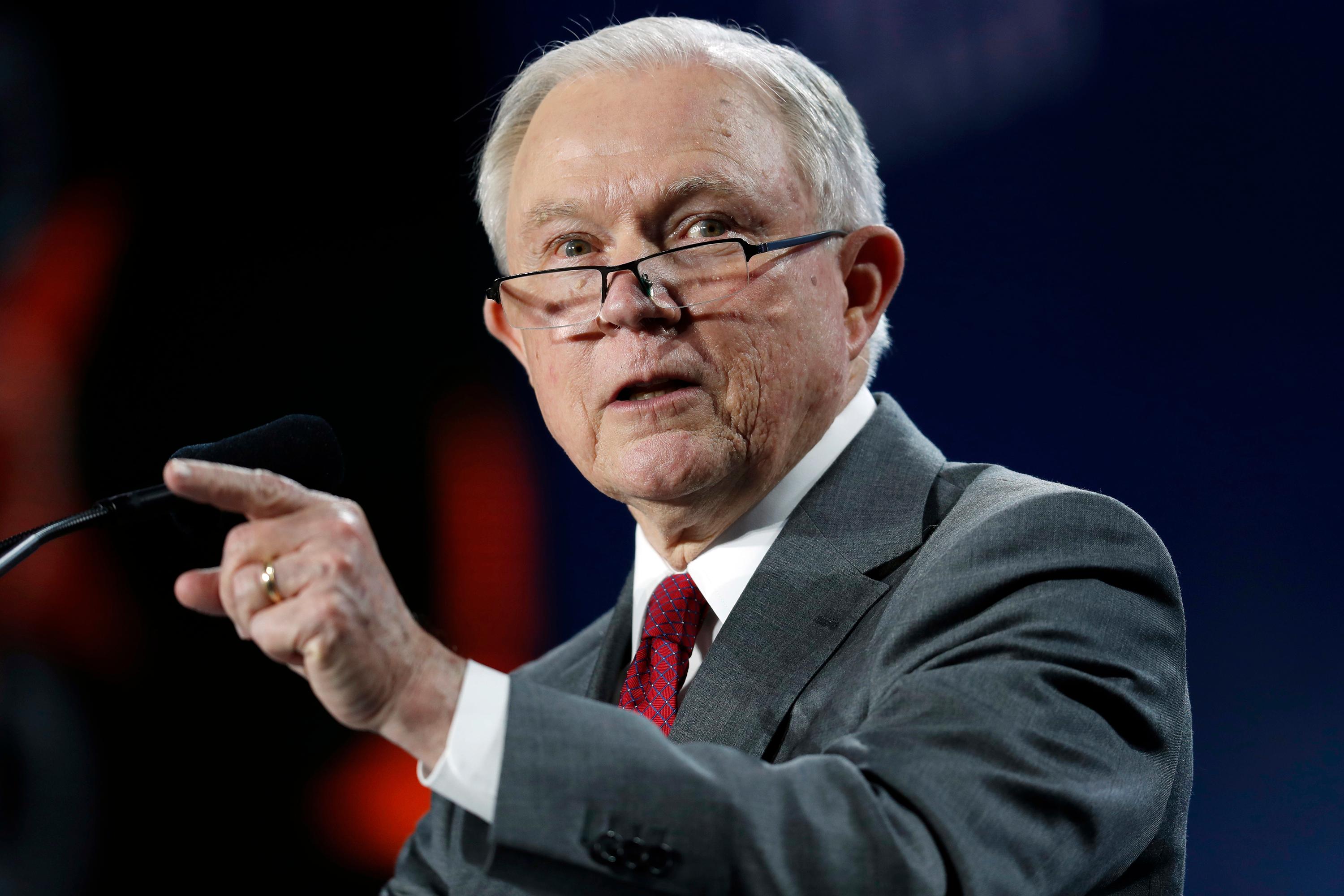

U.S. Attorney General Jeff Sessions, the man at the center of the Trump administration’s policies on immigration enforcement and drugs, avoided talking about current hot-button issues such as separating families at the border or marijuana legalization in an address at the Western Conservative Summit on Friday.
Sessions instead talked about opioids, sanctuary cities and the Department of Justice’s crackdown on violent crime -- particularly on MS-13, the international criminal gang, with ties to Latin America.
“They seek to dominate. They seek to control,” he said. “In effect they seek to exercise their sovereignty over neighborhoods and communities in the United States.”
Sessions said he has added 300 additional federal prosecutors since taking the helm as attorney general. The U.S. has cooperated with Latin American police forces to prosecute more than 4,000 gang members in the western hemisphere. Sessions also noted his agency has prosecuted more than 6,500 opioid-related crimes in the past year.
The nation’s top law enforcement officer also lamented sanctuary jurisdictions, but declined to call out any specific town or city.
“In many cases, they have criminals sitting in their jails who are wanted by our federal officers for deportation … But they won’t turn them over to us,” he said. “They release them back on the streets, causing our officers to arrest them out in the community somewhere … These are dangerous situations.”
Denver Mayor Michael Hancock has sparred with Sessions for a year over immigration and the Trump administration’s threats to withhold federal funding for local law enforcement over the immigration issue. Hancock joined dozens of other mayors last summer in suing the administration. At least one judge has ruled in favor of the cities in this fight.
Hancock took the opportunity during Sessions’ downtown Denver speech to check in on the federal police money he says has been stalled, spokeswoman Amber Miller said on Friday.
“It is time that the DOJ stop stalling these grants that help cities respond to gun violence and human trafficking and support victims of crime,” Hancock said, in an email. “With the attorney general in town, we thought he’d hear us a little more clearly.”
Attendees who spoke with CPR News during the Western Conservative Summit say they want the Trump administration to go further in enforcing immigration violations and securing the borders.
“I think they could be doing more … There are too many people waiting in line who have paid lots of money to be citizens,” said Ardis Dolezal, an Aurora resident who listened to the Sessions speech. “We have people coming in illegally and then when we have to separate the families, we’re blamed.”
State Rep. Kimmi Lewis, who listened to the Sessions speech, said she thinks the Trump administration is getting negative attention surrounding immigration, and it's because she believes it is “finally doing something.”
“President Trump has made it part of his ambition to figure it out,” she said. “And most presidents on both sides of the aisle have looked the other way.”
George Brauchler, Arapahoe County district attorney and Republican candidate for state attorney general, said he believes Congress needs to tackle comprehensive immigration reform -- but that it’s only going to happen after people feel like the border has been secured.
Brauchler also said he feels sympathy for young people who were brought to this country illegally and thinks there should be an eventual legal path for them to stay in the country.
“At our core, we’re not a people who visit the wrongs of parents on their children,” he said. “That’s not who we are as a people, that’s not who we should try to be as a people.
Brauchler also noted he was concerned about separating families at the border, and called it a “tough issue.” He noted he had four kids and he couldn’t imagine being separated from them. But Brauchler said he didn’t blame the U.S. government for the policy though.
“We did not bring them here, we did not force them to go through several other countries to come to our doorstep and seek asylum,” he said. “There is something we gotta talk about though, about how we execute the laws that we have."









